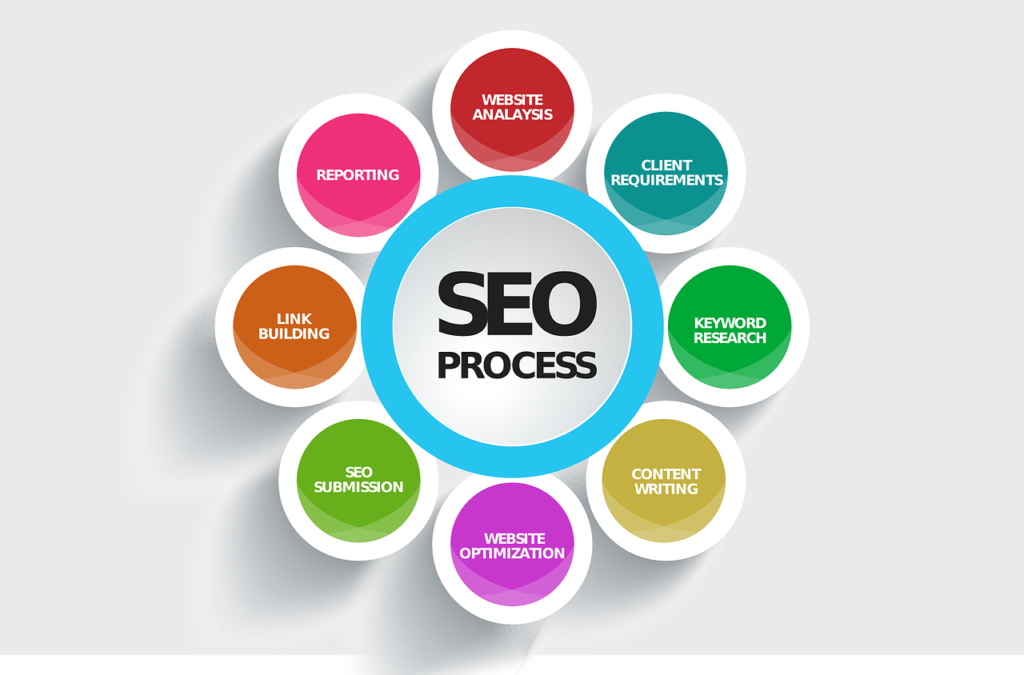Search engine optimization (SEO) is the process of optimizing a website to improve its ranking on search engine results pages (SERPs). The goal of SEO is to increase the visibility of a website, making it more likely that people will find it when they search for relevant keywords. SEO is a crucial aspect of digital marketing, as it helps to drive targeted traffic to a website and increase brand awareness.

There are two main types of SEO: on-page optimization and off-page optimization. On-page optimization refers to the techniques used on the website itself, such as the use of relevant keywords in meta tags, title tags, and the website’s content. Off-page optimization refers to the techniques used outside of the website, such as building backlinks from other websites.
On-page optimization includes:
- The use of relevant keywords in meta tags, title tags, and the website’s content.
- Creating quality content that is relevant, informative, and useful to the target audience.
- Optimizing images and videos by using relevant keywords in the file name and alt text.
- Improving the website’s structure and navigation, making it easy for users to find what they’re looking for.
- Optimizing the website for mobile devices, making sure that it loads quickly and is easy to use on smaller screens.
Off-page optimization includes:
- Building backlinks from other websites. Backlinks are links from other websites that point to a website, and they are an important factor in determining a website’s ranking on SERPs.
- Building relationships with other websites, such as through guest blogging or content collaborations.
- Building a strong social media presence, with a large number of followers and interactions.
One of the most important aspects of SEO is keyword research. Keyword research involves identifying the keywords and phrases that people are searching for, and then incorporating those keywords into the website’s content and meta tags. This helps to ensure that the website is appearing in search results when people are searching for relevant keywords.
Another important aspect of SEO is link building. Link building is the process of acquiring links from other websites to a website. Backlinks are an important factor in determining a website’s ranking on SERPs. The more high-quality backlinks a website has, the more likely it is to rank well on SERPs.
Another important aspect of SEO is Technical SEO. Technical SEO refers to the optimization of the website’s infrastructure and code to make it more search engine friendly. This includes optimizing the website’s structure, URLs, and code to make it easy for search engines to crawl and index the website.
It’s also important to track and measure the results of SEO efforts. This can be done through tools such as Google Analytics, which allows businesses to track metrics such as website traffic, bounce rate, conversion rate, and more. This data can be used to make data-driven decisions, adjust strategies as needed, and optimize the return on investment (ROI).
SEO is an ongoing process that requires time and effort to see results. It’s important to stay up-to-date with the latest SEO best practices and algorithm updates. The world of SEO is ever-changing, Google and other search engines are constantly updating their algorithms, so it’s important to stay abreast of these changes and make adjustments as needed.
Overall, SEO is a crucial aspect of digital marketing that helps to increase the visibility of a website and drive targeted traffic to it. By focusing on on-page and off-page optimization, keyword research, link building, technical SEO, and tracking and measuring results, businesses can improve their ranking on SERPs and increase brand awareness.